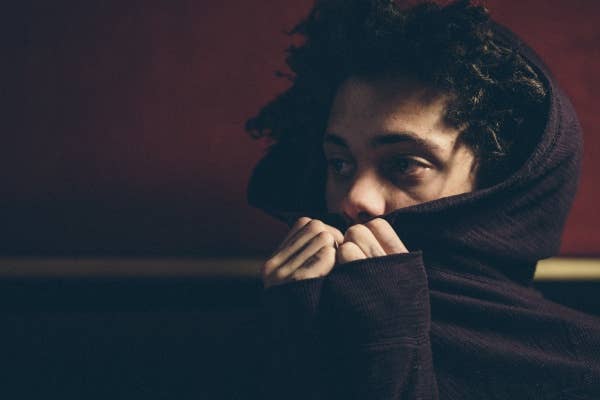1.
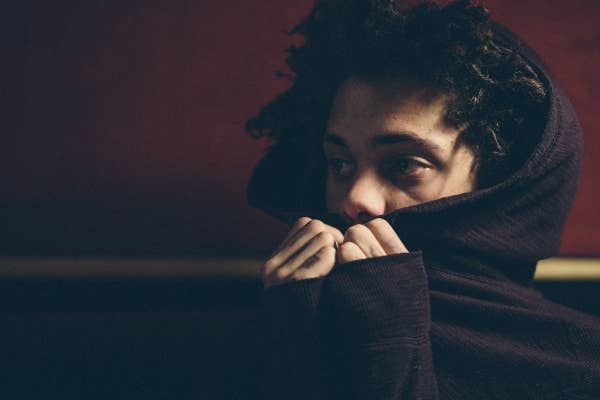
Image via Andrew Zeiter
By Alex Siber
Kweku Collins is finding his voice. The Evanston teenager resides only a short ride away from one of hip-hop’s reigning meccas, but with the release of Collins’ Nat Love last week, listeners are starting to differentiate between the two.
The name Nat Love first belonged to a black cowboy and former slave who roamed America’s Wild West in the early 1900s. That Nat Love gained renown for his skills with a lasso and his thick skin—Love once survived 14 bullet wounds and spent time as a prisoner of American Indians, a tale of redemption and rebirth.
Collins’ hometown of Evanston is not the Wild West, but today’s music industry isn’t far off. And in a modern world, Collins isn’t exactly using the latest tech—he brings his visions to fruition thanks to a deft use of GarageBand ($5 retail). A larger-than-life presence on the mic does the rest.
Beyond the studio, the 19-year-old artist is often stuck in the middle, a mixed-race musician growing up during a moment of truth for racial politics in America. Growing up half-black meant alienation from both groups and sparked a long-lasting confusion about identity. But Collins expertly channels these stormy waters into his music, and the resulting stories have come to fruition on this latest release. They’re both matured and wandering, orbiting his teenage spirit.
Collins raps and sings his way through a world of his own creation. The largely self-produced project bridges gaps with a blend of acoustic and electronic sounds, challenging stereotypes (see the folk-rap “The Rain That Wouldn’t Save”) as he parses genres ranging from reggae to alt-rock.
In 2015, he signed to Chicago’s long-standing independent label Closed Sessions. Chicago locals Taylor Bennett and Jamila Woods make appearances, but guests are otherwise scant.
Two days after the release of Nat Love, we spoke with Collins about the complexities of being biracial in America, the making of his new project, and meeting Chance The Rapper.
How are you doing?
I’m good, man. I’m on my way to the studio right now.
After dropping an album on Friday, you’re right back at it on Sunday.
Yeah dude, work never stops. [Laughs]
Have you listened to the album while you’re out skating yet?
Not yet, not yet. [Laughs] I’ve been meaning to, I’ve been waiting for the right time. I want to see how skating to it is for sure. Whenever it pops into my head I’ll play it. Normally when I’m skating I listen to Electric Wizard or Black Sabbath or some shit like that, so I’m in a completely different genre state of mind.
Four EPs preceded this full-length. Was Nat Love always the light at the end of the tunnel, with those other projects leading up to it?
I’ve been thinking about making a project for a few years before I actually did it. But as far as really, really trying to hammer down the concepts and what not, I’ve been thinking about it for maybe a year. I told myself to start working on a project after the summer was over. So all the tracks that I made were very consciously album material. But there wasn’t a defining moment.
Was there a rush that accompanied the final weeks of recording?
Oh man, it was really hectic. I was living at the studio, actually, for the last week of the making of Nat Love. I stayed at the office above the studio. There was definitely an emotional rush. I was a wreck after that shit. I worked so hard for this project. I really put my everything into it, as cliché as that sounds. It’s true. By the time I finished, I was like, “Ugh, damn. I never want to hear this music ever again.” In a good way though.
4.
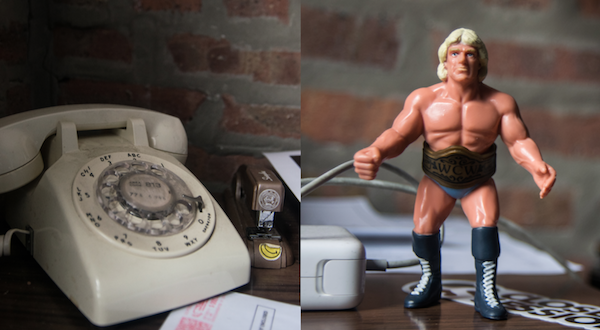
Image via Closed Sessions
Were there moments when you stumbled?
Yeah, I’d go through these periods of a week—I think there was maybe even like a two-week period where I wasn’t making any material I was happy with. Nothing was happening as organically as I wanted it to and I was kind of like, “Damn, I’m forcing it right now.” I really relied on [Closed Sessions] to mellow out a little bit—take a step back, chill out, and just be for a little bit. Thanks to them, I got over it.
How would you describe the influence Boathouse and OddCouple have had on you throughout this process?
They’re both older than me, so they were able to guide me through a bit. They’ve both been at that stage. Fairly recently, too. They’re what, 25 and 22? Something like that. So they know what’s going right now in my life in a broad way and they know what’s coming. They prepare me and give me little heads ups, kind of showing me ins and outs. Pointing out mistakes that I made, like, “Yup, I’ve been there. Just do this next time.” Being an artist, seeing the talent they both have, I’ve been able to pick up so many tricks and ideas and tools of the trade.
Is there a tool you’re particularly appreciative of?
It’s not so much a specific tool, it’s just being around them… actually, there is a specific tool. It’s the tool of possibility, and transcendence I think. They’re able to transcend genre very fluidly. OddCouple, you’ve got the hip-hop, funk, soul, pop. Boathouse can do the exact same thing but in a completely different realm. Seeing the possibility unravel and become even more limitless than I thought they every were before, I think that’s a very powerful tool that I now have at my disposal as an artist. Because now my idea of what’s possible has been stretched.
When did you know you were comfortable releasing Nat Love to the world?
I don’t know, I knew it was done because… because I could hear the circle, ya dig? It’s hard to explain. I could hear the identifiable start and the identifiable finish. I said everything I felt I needed to say. All of the pieces of the puzzle, all of the songs.
Could you explain why Apple should hire you as the official spokesperson for GarageBand?
[Laughs] Oh man. I have so much love and admiration for GarageBand. It’s such a slept-on vessel for creation. Garageband is the shit. Apple should hire me for Garageband because—well, I don’t know everything about GarageBand but I’ve spent so much time working with it that I know all the ins and outs, the little tricks. All that stuff. GarageBand is a solid, super solid… GarageBand is like Chevy—a solid means of creating.
Do collaborators ever give you a hard time for using it in the studio, instead of Logic or Ableton?
Yeah, but, it was never like, “Ew, you’re using Garageband?!” It’s more like, “WHAT! You’re making this on GARAGEBAND? That’s crazy.” I’m telling you man, it doesn’t have to be that hard. Fuck an Ableton, it’s Garageband life all day bruh! [Laughs]
6.
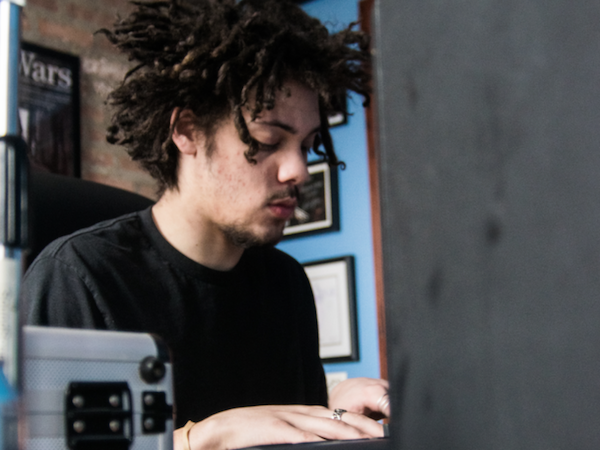
Image via Bridges
You’ve spoken candidly about how incredible it was to produce music for your dad. Who else do you want to produce for before 2016 comes to an end?
Man, this will always be my dream collab, and even if it’s unrealistic I don’t really care. It will always be my answer until it happens, but Sade, definitely. I’ve been dreaming of doing a song for or with Sade since I can remember. If I just happened to encounter Sade and she was like, “Yo, what’s good?” Dude, I don’t even know what I’d do. You know those artists you feel connected to, even if you don’t know them, but there’s that artist-listener relationship that just makes you feel something?
That’s her?
I’d just have to bite the urge to express to her how important her work is to me without completely fanning out. [Laughs]
Definitely. There was a moment last year after a show when I was with someone who’s close with Chance the Rapper. Chance came over and I knew I had to keep my mouth shut or I’d fan out.
That’s definitely a difficult one to fight back. I think that happened to me the first time I met Chance too. I was introduced and I was like, “Oh shit, what do I do? What do I do?” [Laughs] I met him very briefly after the Pitchfork Music Festival. He did that Goose Island beer collaboration and they threw a little party at their HQ in Chicago. He was outside and my manager introduced us. It was a super short conversation, like, “Oh, nice to meet you.”
There’s a subtle divide between where you’re from, Evanston, and the city of Chicago itself. How do you categorize that difference?
I don’t view myself as Chicago artist just because—I live literally ten minutes away from Chicago. I could walk there if I wanted to. But Chicago and Evanston are two separate places. To me, to clearly be from Evanston, but to try and make a name for myself in Chicago, around people who are actually from Chicago, and say I’m from Chicago is kind of disrespectful. It doesn’t seem genuine. I’m also very proud of where I’m from. I love being from Evanston, I love the community I grew up in. My thing is, why not represent where I’m from?
Were there any Chicago artists that offered words of encouragement as you were recording Nat Love?
Taylor Bennett was definitely somebody who made it clear that he was in my corner. Working with him is a great experience. He’s super talented and a nice dude overall. Cats like Mike Golden and Rich Jones definitely gave me a lot of support. Malcolm London, for sure. There’s a few, a good handful who heard it and offered encouragement.
You’ve tended to shy away from features in the past. What led you to bring other people into your world, like Bennett and Jamila Woods?
The track with Taylor came about very organically. He came through, we made the song, and it wasn’t until after the song was finished when he said, “You should keep this for your project.” And it just so happens that that song fits perfectly in the line-up. The song with Jamila, I had the first verse recorded for a really long time and I didn’t know what to do with it. I was just brainstorming with somebody and we had the idea to just give the song to Jamila and see what she thought. It just kind of popped up. So we got in the studio, I played it for her. She wrote her bit and recorded it in the matter of a half-hour or something like that. That one too, happened very naturally. Also shout-out Jamila, she’s a force to be reckoned with for sure.
8.
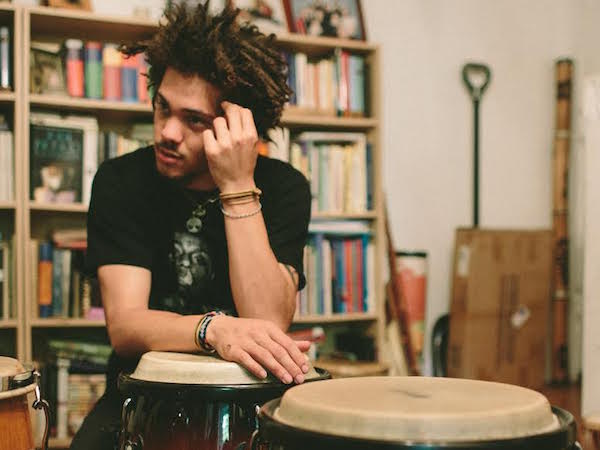
Image via Andrew Zeiter
You cover a lot of ground on Nat Love. Guitar-based tracks comprise the last quarter of the project. Is that you playing?
On the very last track, that’s me on the guitar. But the other two are samples, “Gravity” by John Mayer and “Feather on the Clyde” by Passenger.
There’s a gap, in a way, between those songs and a more left-field track like “Everever (Oasis1).” It’s a cross between Spicy Caliente and Say It Here, While It’s Safe [the two EPs preceding Nat Love]. What attracts you to that dissonance?
I think I love the variance. The idea that cohesion isn’t genre-specific. I think that an artist who can actually cross genres, cross-pollinate their music with alternative psychedelic influence, with hip-hop, with reggae. People who can do that are my favorite artists. Kendrick Lamar, the Tame Impala, The Beatles, Jimi Hendrix—artists who can pull from different avenues of creativity. I always find that really special. The versatility is so captivating, it holds your attention because of the unpredictability.
Do you think that it’s a reflection of your life, in anyway? You seem to be a person who is navigating an in-between space.
I think not fitting in anywhere, and realizing my identity can only truly be defined by myself, gave me the freedom to explore way beyond the genres that maybe stereotypically my genotype dictates. Not really having a spot in society kind of helped me be a little culturally nomadic. Making those hops and those jumps was easier in a way and really expanded how I view music.
You have a song that references the movie The Outsiders, which feels relevant here. Would you say you felt like an outsider for times in your life?
Definitely. I still do even, for that matter, from time to time. To me, being an outsider is not fitting into the defined groups that surround you in your environment. I think it’s a very double-edged sword, not belonging anywhere, because if you play the fact that you don’t belong anywhere right, you can belong anywhere. Like I said, culturally nomadic. You can pick up elements of any culture, add them to your personality, and it gives you a social versatility that I think is very important to have in today’s world. That’s what being an outsider means to me.
Were there moments where you had trouble because of your biracial background?
Oh yeah. I get reminded of that every day. As it stands right now, race is a stupid aspect of our culture and it sucks that it’s so heavily ingrained in the way that society operates. Because I have a foot on both sides of the line, the experiences that I had that were racially based were so confusing as a kid. The usual response you get from mixed people is too white for the black kids, too black for the white kids. It was definitely a challenge that I faced in middle school, high school, and even now.
How have you made sense of that challenge?
I never really had moments of sitting down with my friends and discussing that aspect of my identity with them, because none of them ever understood. I don’t think a lot of them took the time to understand. But with that being said, the few that did want to understand, it was more just analyzing situations that they were able to see.
Imagine walking down the street with a white woman and being a couple steps ahead of her. Seeing an old white lady on the street and saying, “Good morning” with a smile on my face and getting no reaction. Then the girl behind me says good morning and the white woman smiles and says, “Good morning.” Situations like that. Being in neighborhoods that were predominately white and getting those looks that you shouldn’t belong there.
10.
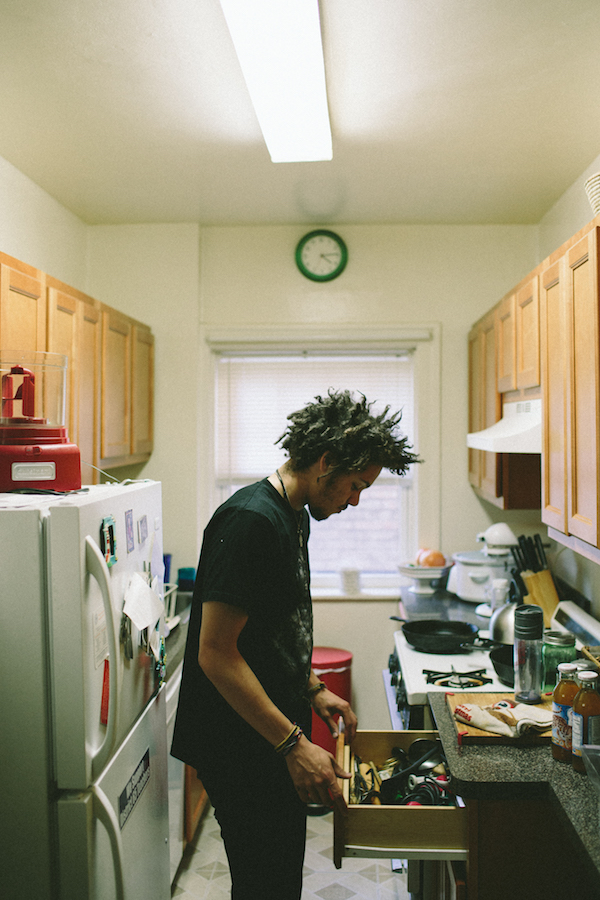
Image via Andrew Zeiter
It’s a complicated thing. When Logic said the N-word on a song there was a reaction of confusion from a lot of people.
Speaking on the situations that you know about, that affect you, that affect other people is very important. Logic sparking that conversation of being mixed, saying “nigga,” that whole issue that every mixed person has had in their life. White kids saying, “Oh you can’t say that, you’re not black.” Well, yes I am. It’s very important to have those conversations. I think hip-hop is the perfect tool to do it because when you look at hip-hop and race together it’s very tricky. It’s so racially driven. Both the art form itself and the perception of it in mainstream pop culture.
There a line you have at the end of Nat Love where you say, “The opportunity has arisen for me to contribute to something that I see as bigger.” Could you expand on that?
All art is true art if it comes from a place of honesty—but for me that line is just acknowledging that, as an artist, whether or not we acknowledge the responsibility, every artist contributes to the fabric of this culture. I have this opportunity, I have this platform to contribute to the broader culture. Western civilization, the world as a community—I’ve been given this platform.
If you died tomorrow, what you want you want your friends, your family, your fans to carry forward?
Really, I just want people to at least put forth the effort to just be empathetic. That’s really all I could ever suggest to people to bring forward in their lives. Try to understand that all people kind of operate on the same plane as far our emotions are the same except for circumstantial barriers. Emotions are very situational. So my sadness and your sadness are different, but at its core, it’s the same. On a very human level we are all the same. That’s what I want to leave people with. Empathy can open up the door for conversations that we need to have. As a community, as a society, as a global race.

